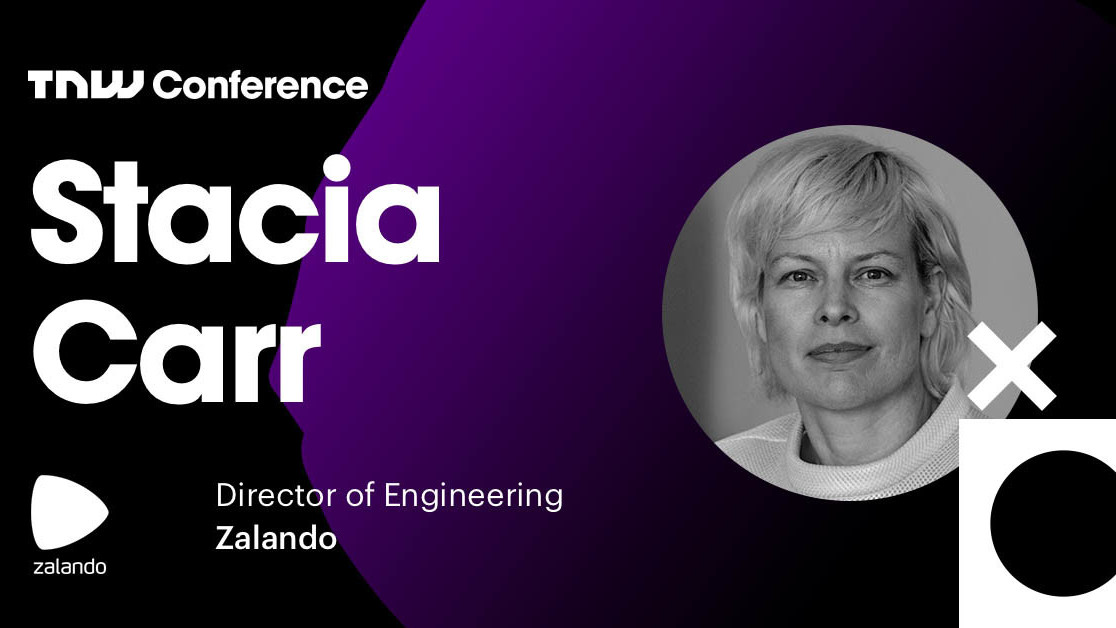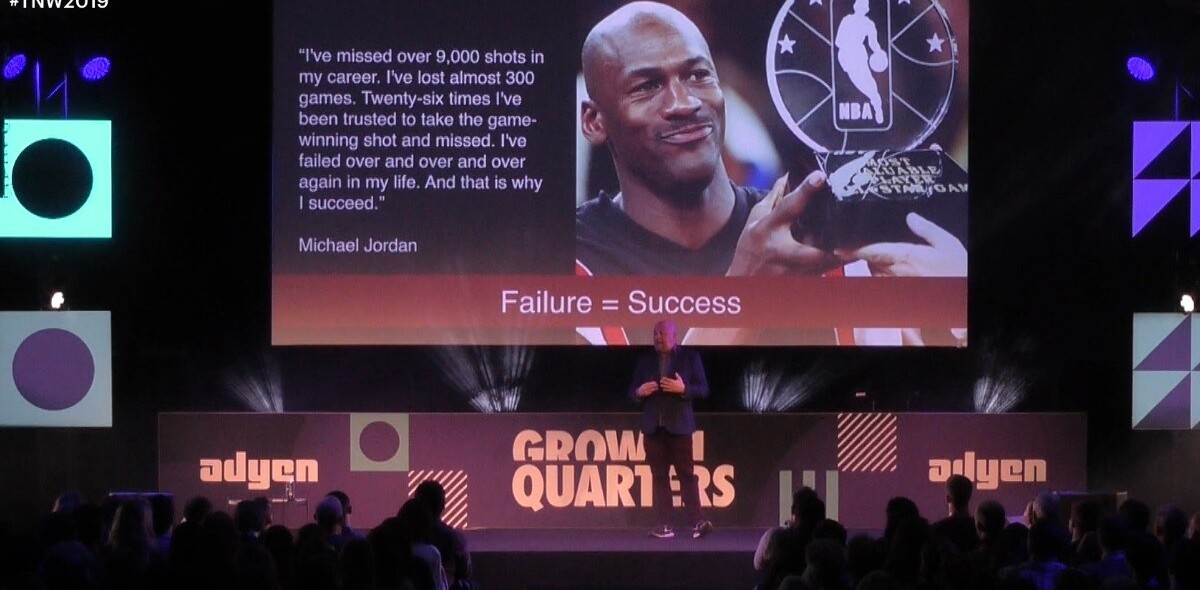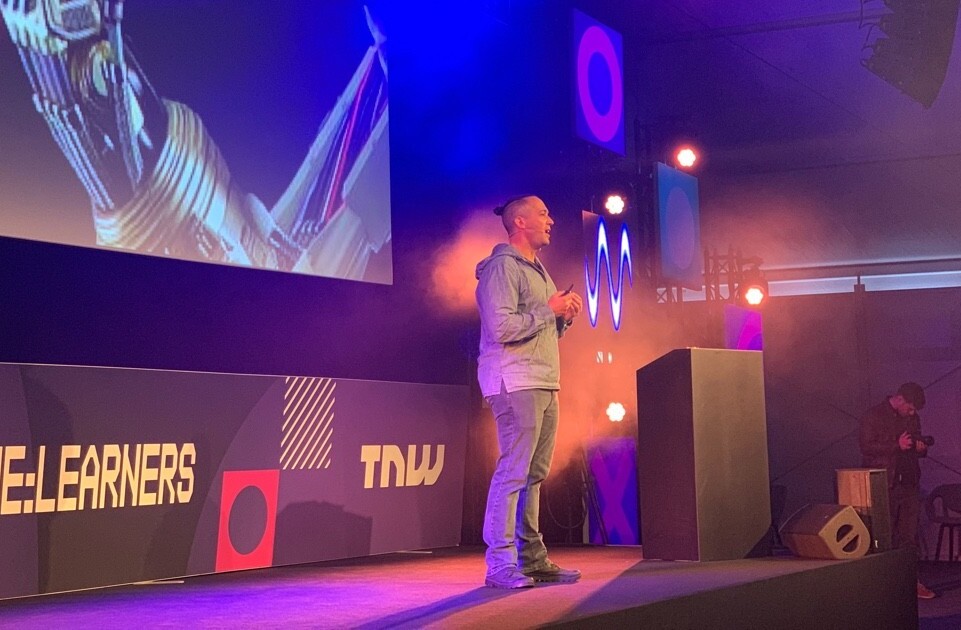
Last week’s TNW Conference featured an amazing lineup of speakers, all sharing their unique knowledge and insights into the future of tech. A prominent theme this year was machine learning and artificial intelligence — namely, how industries can harness its power.
Stacia Carr, Director of Engineering at Zalando, gave an inspiring keynote about how she integrates this tech into her work.
As the fashion industry moves more and more online, customers want to know if the clothes they’re ordering will fit. Together with her team, Carr uses machine learning to make intelligent predictions on variations in size across the industry. We asked her more about her background, how she got to where she is today, and what the future holds:
You graduated from Berklee College of Music and went on to work in the music industry for a while. How did the transition towards engineering happen and what inspired the change?
For me the intellectual part of the transition was really natural — music is math — from math to computer science – and really overall, thinking in abstract concepts for system design is very similar to composition. Studying computer science felt really familiar and exciting to me.
The inspiration for the shift was also very natural. I was at Berklee in the early ’90s just as affordable digital recording technologies were hitting the market. It was so obvious to me that with a dial-up modem and the possibility of making high quality recordings at home, suddenly we’re living in a world where one didn’t need to impress a record label in New York or LA to invest in a musician’s work.
The musician could take their future into their own hands. I wanted to make this happen so I started working in online music distribution startups where I could combine newly acquired programming skills with my music background.
You left San Francisco, the epicenter of tech entrepreneurship and innovation, for Berlin. What was the potential you saw in Europe and in Zalando in particular?
I loved working and living in San Francisco, particularly during the late ’90s and early 2000s. This was an incredible time of change, possibility, and people with very diverse backgrounds coming together to explore the potential of the internet with a lot of genuine curiosity and heartfelt desire to shape the future.
What I experienced over the subsequent 15 years was an increased focus on creating wealth and development of products that seemed to benefit smaller numbers of people. I saw moving to Europe as a way to disrupt my personal and professional life trajectory.
I wanted to live in Europe since I was a teenager, but I had no idea what it would be like to work here. So the move was a way to push myself way out of my comfort zone and at the same time realize an important dream.
Working at Zalando represented an opportunity to take my experience, share it with others, and support the development of the next generation of entrepreneurs.
Zalando’s ambition felt very familiar to me and from my perspective the fashion industry is about where the music industry was when I first started working in the mid ’90s — ripe for disruption, innovation, and democratization through the possibility of digital automation.
In interviews, you’re vocal about the need for more diversity in tech. Is there anything you wish you had known at the start of your journey as a woman in engineering?
My time at Berklee left me well prepared for working in a male dominated industry; while I was there, the male to female ratio was 9 to 1. If I could have spoken to my younger self both in music and in tech I would love to say, “don’t be fooled, they sound like they know what they’re talking about, but they have just as many questions as you do.”
Is leadership something that came naturally to you? What are the biggest challenges of being a leader of an engineering team?
Yes, I was the kid roping the neighborhood kids into building a lemonade stand or writing a local newspaper together. I love bringing people together to work as a team — the human connection and the possibility of creating something big together is exciting and personally fulfilling.
When you lead engineers, technical folks, or just really smart people, you have an inherent responsibility to create a container for them to thrive that is also deeply connected to value creation for customers and business. It’s really easy for individuals to get caught up in their own growth ambition and lose sight of the customer or business objective. It’s your job to gently and thoughtfully reset that focus.

People don’t usually think about fashion as a tech-driven industry. What are the most exciting innovations we should be looking out for?
A lot of 3D is coming our way in the fashion world. As more and more fashion purchases move online, we as an industry need to turn to 3D technologies to be able to provide the customer with the right fit, ensuring a more sustainable experience for everyone.
Customers should be looking out for 3D fitting rooms, even more personalized recommendations, and inspiration in the form of outfits and collections to suit all occasions. Online shopping experiences are becoming increasingly personalized, making use of vast amounts of data and technologies such as machine learning to show that they know the customer better than anyone else.
At your role in Zalando, you’re innovating sizing with machine learning. What other areas of the fashion industry could benefit from this technology? Where do you see AI in fashion heading to in the future?
AI in fashion is, on the one hand, about creating a personalized experience for customers. Machine learning helps us to analyze the very personal nature of fashion and teach an algorithm what makes a good outfit, for example, allowing us to scale inspiration for the benefit of all our customers.
On the other hand, AI also offers sustainability. Using machine learning, we’ll be able to produce on demand, design in 3D, and reduce the type of wastage which has become commonplace with mass-produced clothing. It’s a very exciting time to be working in fashion!
Want to learn more about the future of tech? TNW2020 takes place on June 11 and 12 in Amsterdam – get your tickets now!
Get the TNW newsletter
Get the most important tech news in your inbox each week.




